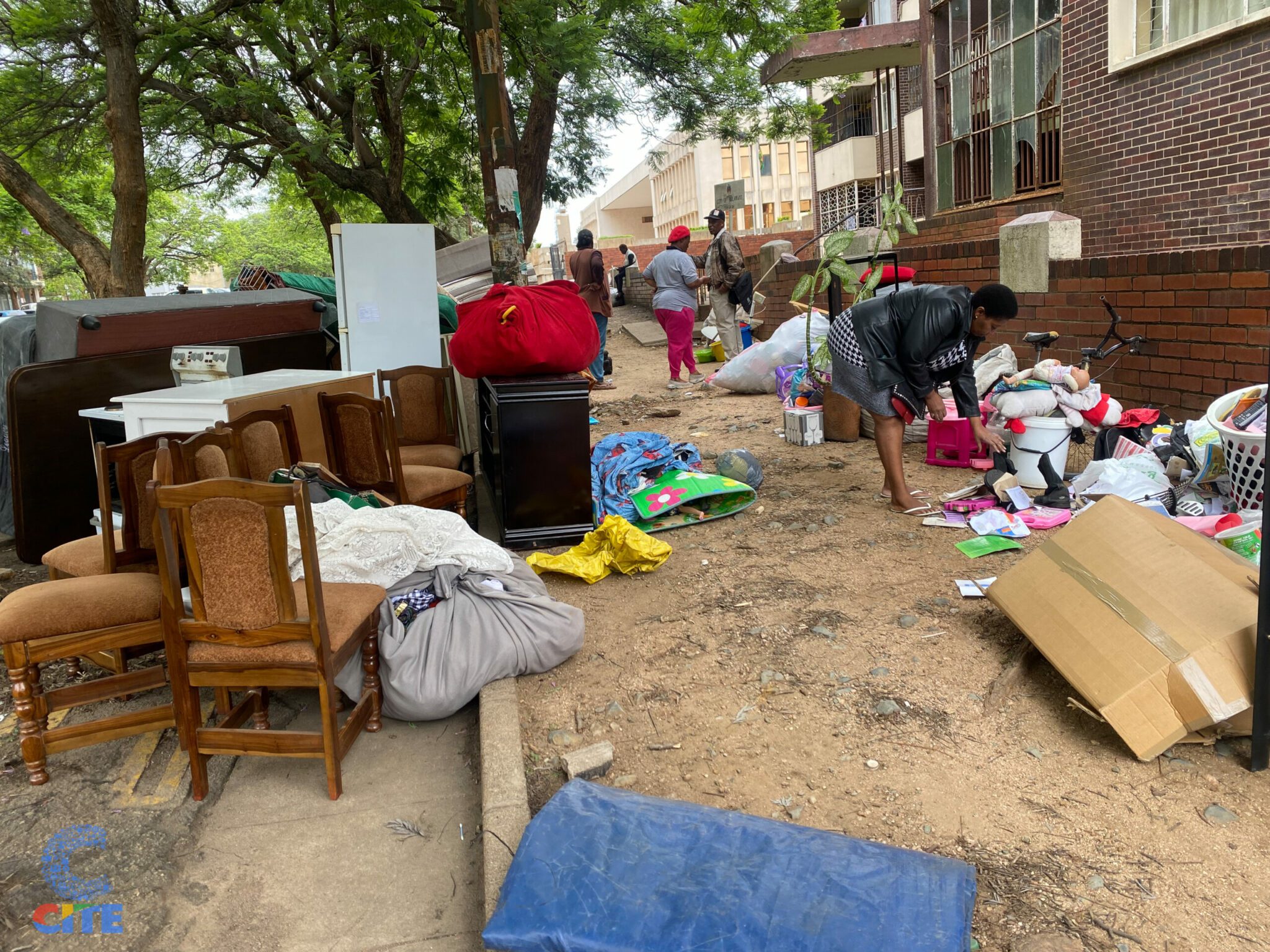Tenants at three Bulawayo City Council-owned residential flats are fighting an eviction order to vacate and make way for municipal workers, arguing that the local authority must be patient and give them time to find alternative housing.
Some of these tenants have lived in these flats for 20 to 45 years.
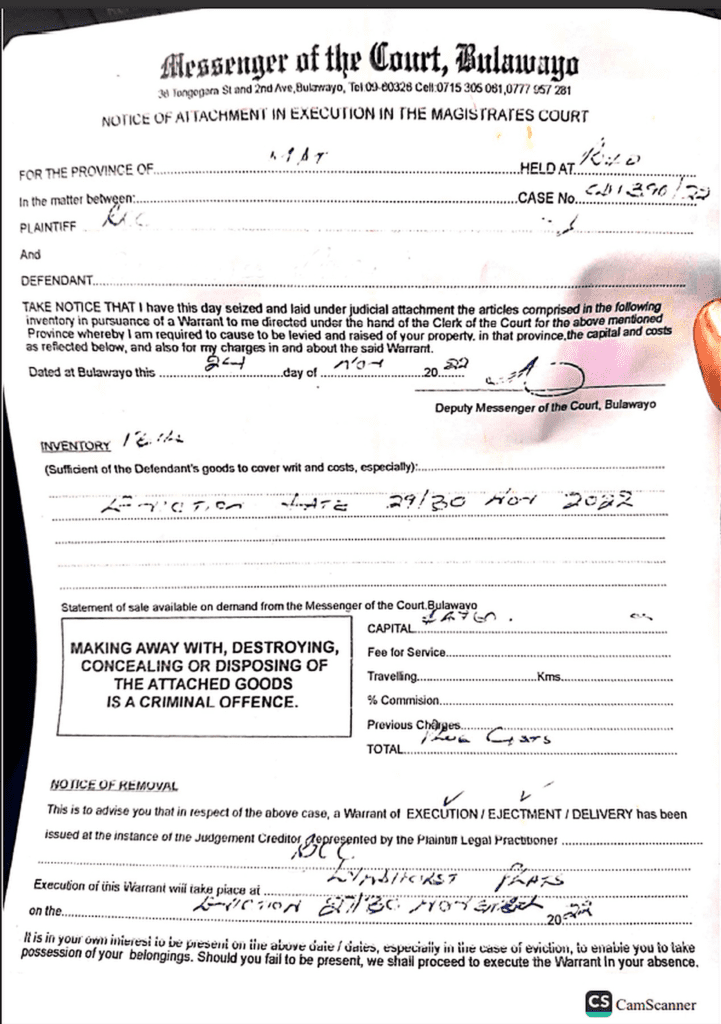
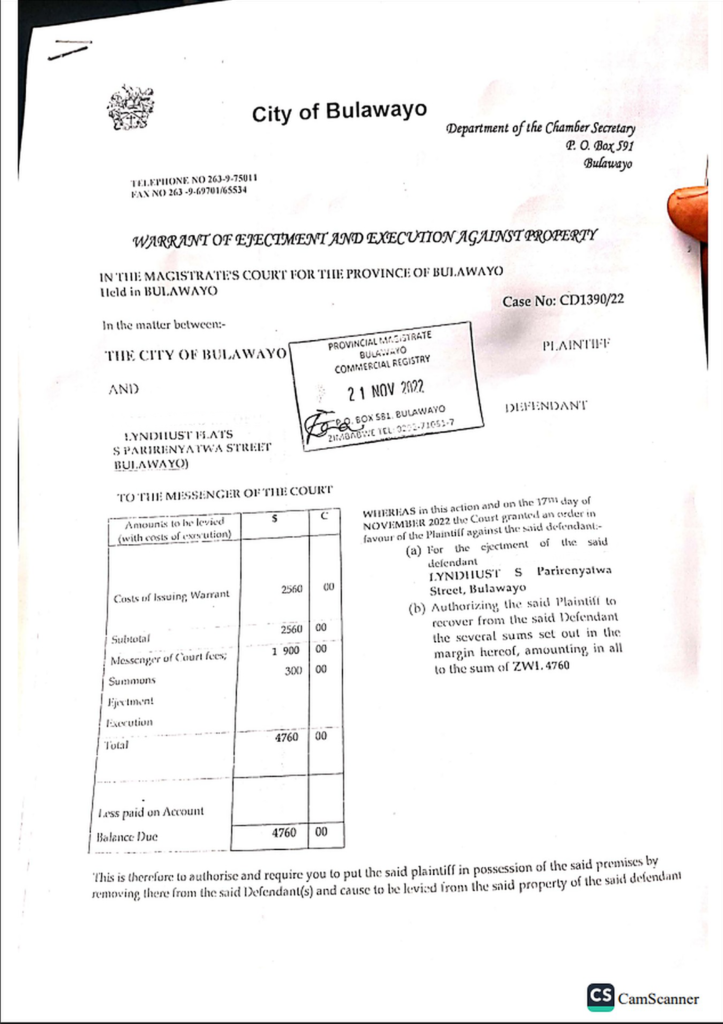
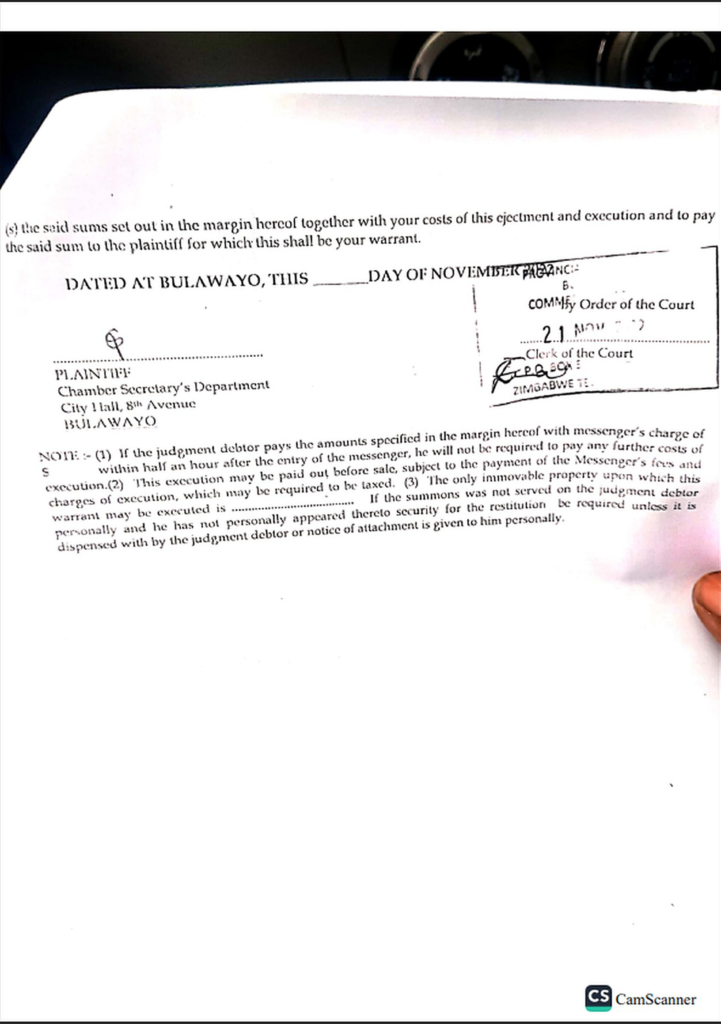
The local authority issued eviction orders last week to evict non-council workers from Parkhurst, Tregene, and Lyndhurst flats located in the city centre.
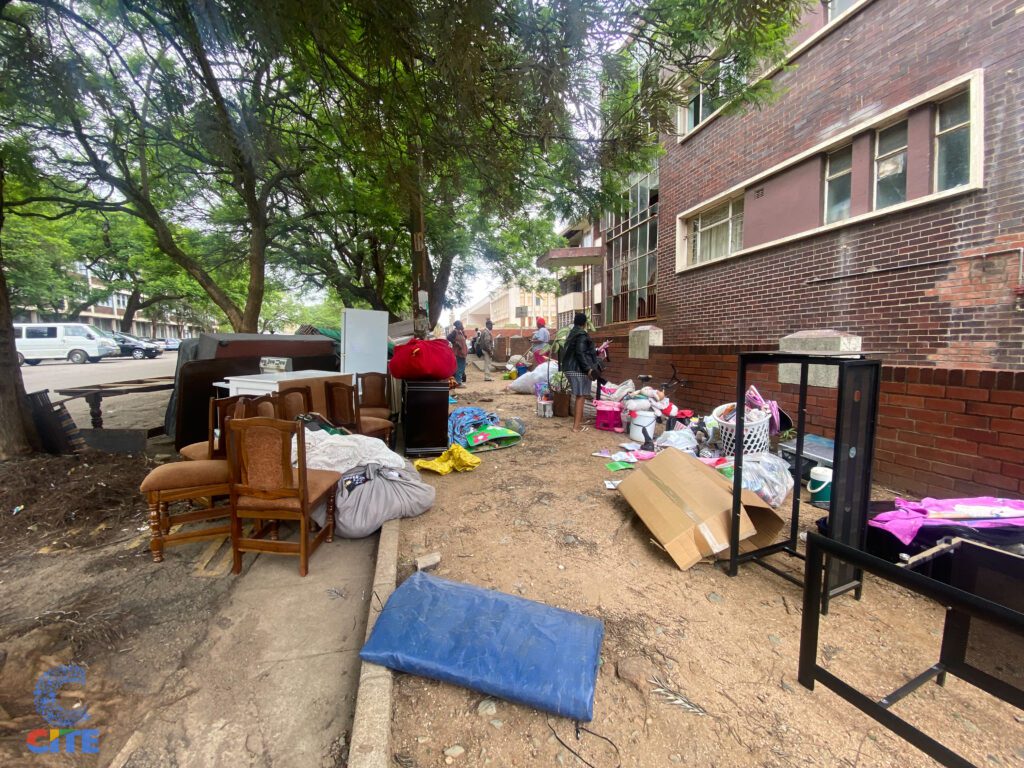
On Tuesday, BCC moved ahead to evict some families from Tregene Flats and removed some of their property.
However, the tenants through their lawyer, Pineas Madzivire of Joel Pincus, Konson and Wolhuter successfully stopped the evictions.
“I live in Parkhurst and am one of the tenants who was evicted by the city council. Our problem began long before Covid-19. The city council wanted to evict us, but we begged them not to because other people don’t have stands and others are still building their houses,” said one of the tenants, who requested anonymity fearing victimisation from BCC.
“Some of the tenants have been here for a long time. Some have reached 45 years, others 17 to 22 years and they and they were paying rates.”
The tenant stated that they were supposed to vacate the flats prior to Covid-19, but circumstances changed due to the lockdown.
“People lost their jobs during Covid-19 then we were stuck. But now the evictions have started again,” said the tenants who were forced to engage lawyers since they were not reaching an understanding with BCC.
“We once had a meeting with the town clerk (Christopher Dube) who said we must divide ourselves as council and non-council workers then decide who would leave.”
But the tenants said that was an unreasonable decision.
“Who do you remove and leave? That doesn’t work. We went to lawyers and the matter has been in and out of courts until this time. But for today, the matter has been temporarily resolved as the courts stopped the evictions but the case still goes on,” said the tenant.
BCC claimed it wanted to house council workers and expatriates but the tenants said those lodgings were in poor condition.
“There are only 11 non-council tenants but how many nurses and doctors are there? Will these lodgings be enough? Of course, others are leaving willingly but other tenants have died due to stress caused by this issue. Two elderly women, Granny Williams and MaSibanda died because of this,” they claimed.
One of the tenants stated that she applied to stay in the flats in 2002.
“Anyone could rent but council workers could not afford rates, so the council started looking for non-council workers who could afford to pay,” she said.
“We know we have to move out but the council just has to be patient. Let those who are building finish and others look for proper accommodation. These evictions have traumatised our children, some of whom are writing their examinations.”
Madzivire refrained from commenting, advising the publication to seek records from the courts.
This is not the first time BCC has served eviction notices to tenants occupying its flats.
Last month councillors passed a resolution to serve eviction notices to 127 former council employees at the Bulawayo Municipal Compound in Makokoba after it was discovered that only 15 of the 142 units within the BMC compound were occupied by serving employees.
Tenants fought the move, claiming they have housing files and certificates of occupation from the local authority.
BCC provides council-owned housing at subsidised rates to its employees, and it has previously been a source of dissatisfaction among employees due to allegations that some sublet the properties at higher rents, prejudicing other employees who would be desperate for housing.

